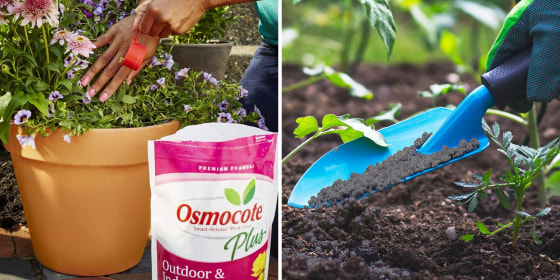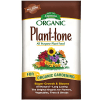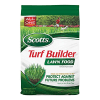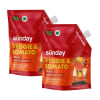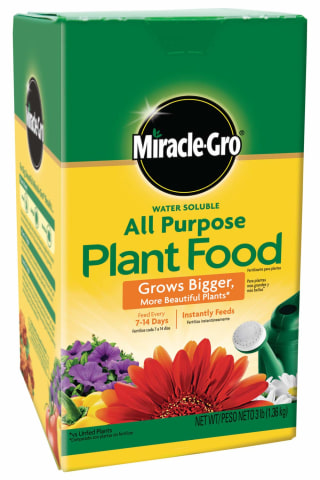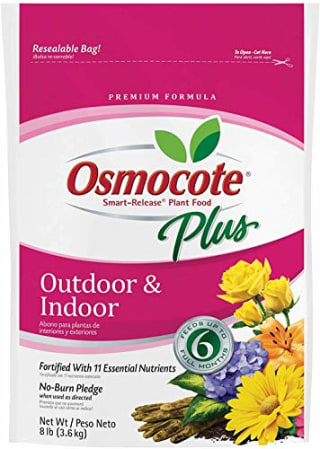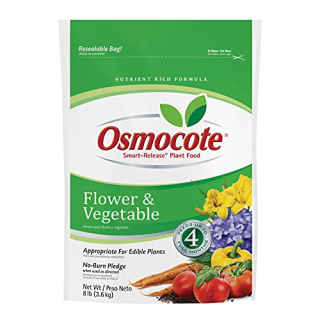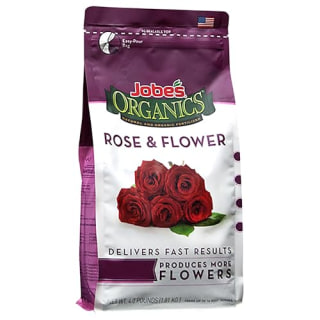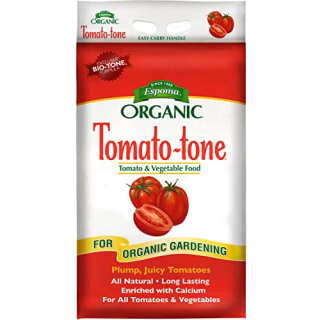If you’re looking to start gardening, essentials like raised garden beds, pruning shears and sun hats will make maintaining a lush vegetable garden or healthy lawn much easier. Whether you’re a novice or a garden pro, finding the best fertilizer for your soil is also incredibly important. That’s because fertilizer is what helps your seedlings sprout and continue to flourish over time. If you end up choosing the wrong fertilizer or don’t use it properly, it could prevent your garden from growing efficiently and damage your plants, according to the gardening experts we spoke to.
I spoke with multiple gardening experts for their insight and product recommendations for the best fertilizers for lawns, flower beds and vegetable gardens.
SKIP AHEAD How we picked the best fertilizers | The best fertilizers of 2024 | How to shop for fertilizers | Why trust NBC Select?
What is fertilizer?
Fertilizer is a chemical substance that functions as nutrients for plants. Similar to light exposure, fertilizer is a necessity for ensuring that your plants thrive and grow efficiently. “The main purpose of fertilizers is to feed the plants so they can establish themselves, grow, bloom and be strong enough to resist pests and disease,” says Carmen DeVito, a professional garden designer. “Good fertilizer also enriches the soil and helps the microorganisms so they can help the plants take up the nutrients they need from the soil.” Fertilizers are made from both natural substances such as compost, bone meal and manure and artificial ones made from nitrogen or phosphate. Natural and artificial fertilizers are also referred to as organic and inorganic, respectively.
How we picked the best fertilizers
There are several factors to think about when choosing a fertilizer for your garden. Here’s what our experts recommend keeping in mind:
Organic and non-organic: Fertilizers are either organic or non-organic (sometimes called synthetic, chemical or artificial), according to Julie Bawden-Davis, the author of multiple gardening manuals. “The difference between these two types of fertilizers is that organic fertilizers are derived from natural ingredients found in nature, whereas chemical fertilizers are man made,” she says. One isn’t necessarily better than the other, but their ingredients are different. “Chemical fertilizers also tend to be much stronger than organic fertilizers, and as such must be used with more care and caution, as too much chemical fertilizer can burn plant roots and damage them.” We included both organic and inorganic fertilizer options in our list, since they both have their own benefits.
Complete vs. incomplete: Fertilizers come in both complete and incomplete versions (sometimes called single-ingredient). This means that they have all or a portion of the foundational macronutrients, which includes nitrogen, phosphorus and potassium, often noted on the label as NPK or in the form of three numbers separated by a dash. The portion of each ingredient is noted on the bag in percentages. As an example, a bag that has: 5-10-5 on it has 5% nitrogen, 10 % phosphorus and 5% potassium. While complete fertilizers have all of the necessary macronutrients, incomplete fertilizers are beneficial because they often have more micronutrients (such as iron), according to Bawden-Davis, which also helps strengthen some plants. We included both complete and incomplete fertilizers in our list, as they both provide different needs to plants, according to our experts. Most of our selects, however, are complete fertilizers as they’re better for novice gardeners.
Plant type: We also considered what types of fertilizers are good for plants, flowers, vegetables and landscapes, respectively. Fertilizers commonly come in mixes formulated for particular types of crops, each one with a different ratio of the three main macronutrients mentioned above, according to DeVito. Flowers, fruits, vegetables and lawns all require their own ratio of these ingredients. You can even find fertilizers that are formulated for individual types of flowers, like hydrangeas and roses.
The best fertilizers of 2024
All of the fertilizers below are either direct recommendations from our experts or are highly rated on Amazon with at least a 4-star average review from 500 reviews or more.
- Organic
- Good for novice gardeners
- Nothing to note at this time
Best all-purpose fertilizer: Espoma Organic Plant-Tone Organic All-Purpose Plant FoodThis fertilizer comes recommended by DeVito, who likes it as a go-to organic fertilizer option. It’s an all-purpose fertilizer, meaning it’s appropriate for growing most plants, vegetables, trees, shrubs and flowers, including annuals and perennials, according to the brand. It has a fertilizer profile of 5% nitrogen, 3% phosphorous and 3% potassium. It also has a long-lasting formula that won’t damage or “burn” plant roots, according to the brand.
Type: organic | Complete fertilizer? yes | Fertilizer analysis: 5-3-3 | Best for: all-purpose gardening
Best chemical fertilizer: Miracle-Gro Water Soluble All-Purpose Plant Food
- Water-soluble
- Good for indoor and outdoor
- Not organic
Miracle-Gro’s water soluble fertilizer is another reliable all-purpose option. Recommended by NBC Select SEO editor Nikki Brown, it’s perfect for growing and maintaining rose and vegetable gardens, trees, shrubs and indoor plants, according to the brand. Since the fertilizer dissolves in water, you can add it directly to a watering can, or the brand’s garden feeder, and apply it to the soil of your indoor and outdoor plants. This means you don’t have to work the fertilizer into the soil manually, like you would with a granular one.
Type: non-organic | Complete fertilizer? yes | Fertilizer analysis: 24-8-16 | Best for: all-purpose gardening
Best lawn fertilizer: Scotts Turf Builder Lawn Food
- Good for many grass types
- Best for lawns only
If you’re looking to maintain or revive your lawn, consider Scotts Turf Builder lawn fertilizer, which has a 4.6-star average rating from 6,435 reviews on Amazon. It helps grow and maintain your grass, while also protecting it against damage, according to the brand. It also strengthens the roots in your lawn and helps the soil absorb water and nutrients more easily. It’s compatible with many grass types, including bermuda, centipede, ryegrass and zoysia. This particular mix of fertilizer is high in nitrogen, which helps create more vibrant healthy lawns, according to Bawden-Davis.
Type: non-organic | Complete fertilizer? no | Fertilizer analysis: 30-0-4 | Best for: all-purpose gardening
Best slow-release fertilizer: Osmocote Smart-Release Plant Food Plus
- Good for busy gardeners
- Easy to use
- Nothing to note at this time
The Osmocote Smart-Release fertilizer is a type of slow-release fertilizer (one that gradually releases nutrients into the soil) so it’s convenient for people who want to maintain their garden without having to regularly add fertilizer throughout the year. It can feed a wide range of plant types for up to six months, according to the brand. To use it, all you have to do is mix a small scoopful of the fertilizer granules into the first few inches of soil and water your plants as needed.
Type: non-organic | Complete fertilizer? yes | Fertilizer analysis: 15-9-12 | Best for: slow-release fertilizing
Best fertilizer for flowers: Osmocote Smart-Release Plant Food Flower & Vegetable
- Slow release
- Good for flowers
- Good for vegetables
- Best for flowers
Another slow-release fertilizer, this granular option from Osmocote is particularly great for growing flower gardens. With a 4.7-star average rating from 25,106 reviews on Amazon, it has an equal mix of nitrogen, phosphorus and potassium that’s formulated for growing healthy and heavy perennial flower beds and vegetables, according to the brand. It comes with a scoop included and you can use around three tablespoons of the fertilizer for every 4 square feet, according to the brand.
Type: non-organic | Complete fertilizer? yes | Fertilizer analysis: 14-14-14 | Best for: slow-release fertilizing and flowers
Best fertilizer for roses: Jobe’s Organics Granular Rose Fertilizer
- Good roses and hydrangeas
- Best for roses only
This fertilizer from Jobe’s, which has a 4.6-star average rating from 16,713 reviews on Amazon, is ideal for gardeners who want to focus on growing roses in particular. It has a mix of nitrogen, phosphorus and potassium that’s perfect for growing healthy roses. In addition to macronutrients, it has a mix of bone meal, potash, feather meal and composted poultry manure.
Type: organic | Complete fertilizer: yes | Fertilizer analysis: 3-5-3 | Best for: roses and flowers
Best fertilizer for vegetables gardens: Sunday Garden Naturals Veggie and Tomato
- Good for vegetables
- Nothing to note at this time
This fertilizer is best suited for vegetable gardens and was recommended by Brown, who’s an avid gardener and regularly grows vegetables at home. In addition to a blend of nitrogen, phosphorus and potassium for substantial plant growth, it has soybean protein, potash and feather meal to further help provide your vegetables nutrients for healthy growth. The fertilizer also comes in a small bag with a spout attached, which makes it easy to apply to your garden bed without manually scooping it out.
Type: organic | Complete fertilizer: yes | Fertilizer analysis: 5-4-5 | Best for: vegetables
Best fertilizer for tomato gardens: Espoma Organic Tomato-Tone Fertilizer
- Has calcium added
- Best for tomatoes/vegetables
While you can use many vegetable-centric fertilizers for tomato gardens, you can also consider one marketed especially for growing tomatoes. Espoma’s tomato fertilizer has a 4.8-star average rating from 555 reviews on Amazon, and is great for growing all types of tomatoes, including heirlooms and hybrids, according to the brand. It doesn’t require any mixing and doesn’t produce excess foliage, according to the brand. Plus, it has 8% calcium to help prevent end rot.
Type: organic | Complete fertilizer: yes | Fertilizer analysis: 3-4-6 | Best for: tomatoes and vegetables
How to shop for fertilizers
There are a lot of options when it comes to fertilizers, so it’s difficult to always know where to start. It’s a good idea to consider the types of fertilizer that are best for what you want to grow or maintain. Here are few terms and fertilizer characteristics to keep in mind:
Granular
This is a solid fertilizer that comes in the form of granules. You can easily scoop them from a bag, sprinkle them into soil and mix them in manually, according to Matt Koch, director of biotechnology, genetics, and seed at ScottsMiracle-Gro. “Granular fertilizers are available in both quick-release and slow-release forms. The slow-release options provide nutrients over an extended period, reducing the need for frequent applications,” he says. “They are also easy to store and cost-effective for large areas.”
Any inclusion of ScottsMiracleGro in this story was made independently of Koch, who we only consulted for shopping tips and guidance. We did not ask Koch for product recommendations.”
Water soluble
Water-soluble fertilizers are solid fertilizers that dissolve easily in water. This means they act as a liquid fertilizer, which is beneficial depending on what you’re growing, maintaining or salvaging, according to Koch. “Water-soluble or liquid fertilizers are quickly absorbed by plants, making them ideal for addressing nutrient deficiencies or for encouraging rapid growth,” he says. “The liquid form allows for even application, especially when used with a sprayer, and can be easily adjusted for specific plant needs.”
Slow and quick release
As Koch mentioned above, slow-release and quick-release fertilizers are fertilizers that either feed nutrients to plants very rapidly or slowly, depending on their individual needs. In particular, slow-release fertilizers are great for people who don’t want to do applications too frequently, according to Amy Enfield, senior horticulturist at ScottsMiracle-Gro. What is beneficial about them is that they “release nutrients slowly over time to supply your plants with a steady supply of nutrients,” she says. “The duration of feeding and time to reapplication varies by product.”
Any inclusion of ScottsMiracleGro in this story was made independently of Enfield, who we only consulted for shopping tips and guidance. We did not ask Enfield for product recommendations.”
Nitrogen, phosphorus and potassium (NPK)
As previously mentioned, these three elements make up the foundational macronutrients that all plants need for growth. That said, they each have a particular benefit to different types of plants, according to Nathan Heinrich, a horticulturist and botanical designer. “The most powerful of the nutrients is nitrogen. Nitrogen is responsible for leaves, shoots and all green growth — that’s why nitrogen is used heavily on lawns and golf courses to keep turf lush and green,” he says. “ A plant’s ability to produce energy through photosynthesis is dependent on how much nitrogen is available in the soil and absorbed through the roots.” Additionally, phosphorus is important for growing flowers, fruits and roots, while potassium helps plants tolerate stress, according to Heinrich.
Meet our experts
At NBC Select, we work with experts who have specialized knowledge and authority based on relevant training and/or experience. We also take steps to ensure all expert advice and recommendations are made independently and without undisclosed financial conflicts of interest.
- Carmen DeVito is a garden designer and certified New York State landscape professional at Garden Cult.
- Julie Bawden-Davis is a gardener and the author of multiple gardening books, including Southern California Vegetable Gardening.
- Nathan Heinreich is a horticulturist and botanical designer.
- Amy Enfield, Ph.D., is the senior horticulturist at Scotts Miracle-Gro.
- Matt Koch, Ph.D., is the director of biotechnology, genetics, and seed at Scotts Miracle-Gro.
Any inclusion of ScottsMiracleGro in this story were made independently of Enfield, who we only consulted for shopping tips and guidance. We did not ask Enfield for product recommendations.”
Any inclusion of ScottsMiracleGro in this story were made independently of Koch, who we only consulted for shopping tips and guidance. We did not ask Koch for product recommendations.”
Why trust NBC Select?
I’m a commerce editor at NBC Select, where I cover garden, home and kitchen-related topics, such as the best seed-starting trays to use.
Catch up on NBC Select’s in-depth coverage of personal finance, tech and tools, wellness and more, and follow us on Facebook, Instagram, Twitter and TikTok to stay up to date.
